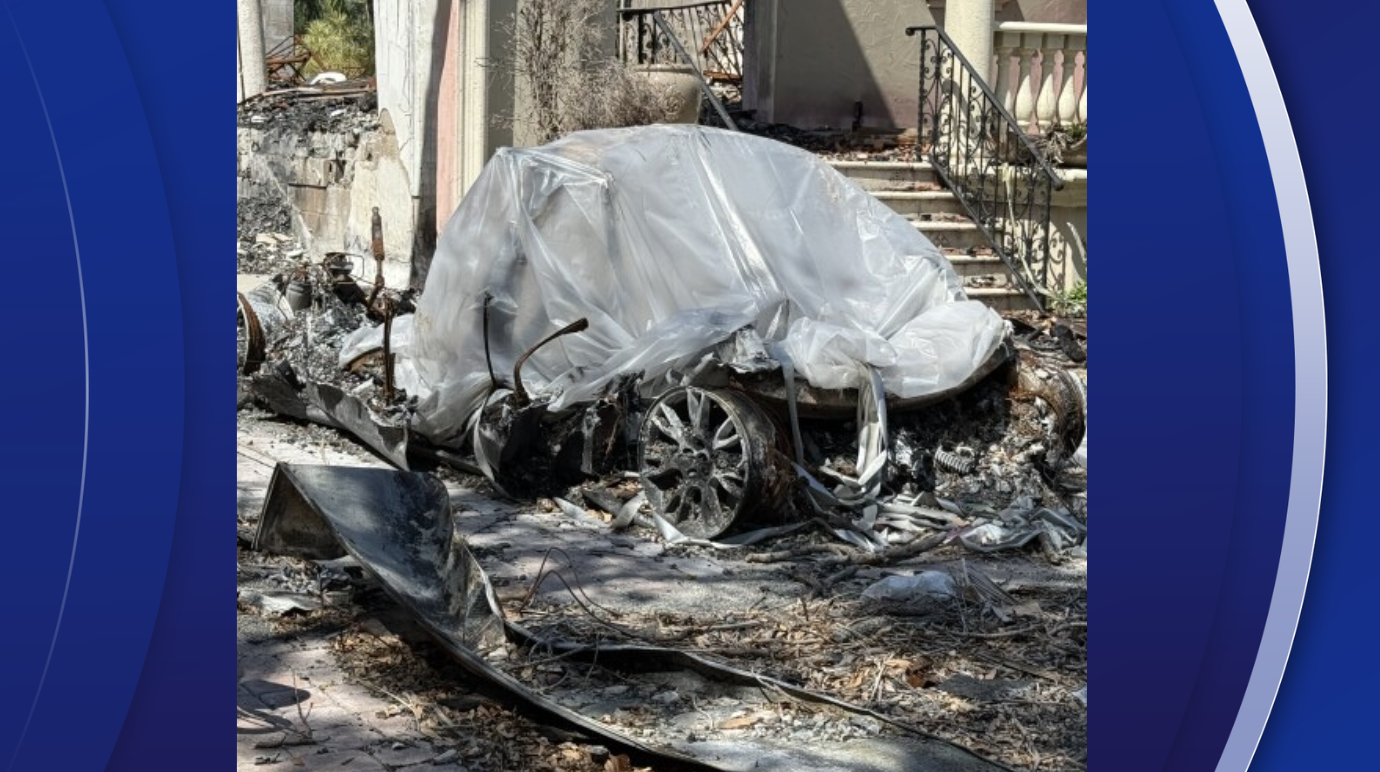PINELLAS COUNTY, Fla. — During Hurricanes Helene and Milton, dozens of fires were sparked when floodwaters came into contact with lithium-ion batteries in both electric vehicles and common household items.
Firefighters are warning people that the threat isn’t only during the storm, but in the days, weeks, and even months that follow.
“If it's exposed, especially to salt water, it definitely needs to be pulled out of your garage,” said Pinellas Park Fire Department Firefighter and Paramedic Kasey Ras.
WATCH NOW: Protect your home: Hidden dangers of lithium-ion batteries during hurricane season
Ras’ engine was the first on scene weeks after Hurricane Helene when an EV submerged in the storm started burning while it was being towed out of a home.
Cellphone video recorded by Ras showed the challenge her team faced.
“You can see us putting water on the fire as soon as our water moves from that particular spot on the car over to the right, the fire comes right back,” she explained.
Saltwater conducts electricity and is highly corrosive, a combination that’s dangerous with an EV’s lithium-ion battery. When the battery is hit by saltwater, it can corrode, then spark a fire that burns hotter and faster and is a challenge for firefighters to put out.
“The car sat kind of down on its belly. It was very low to the ground. Well, that's where the batteries are, so it made it very difficult to get our water directly onto the batteries,” Ras said. “Eventually it burned itself out.”
After that experience, Pinellas Park invested in an EV blanket that firefighters can use to cover the flames; it won’t put them out, but can help prevent them from spreading.
The risk isn’t confined to cars. It extends to anything with a lithium-ion battery, including golf carts, electric scooters and bikes, kids' toys, and power tools.
“There's no telltale sign of when one is going to let loose and actually become a fire,” said Pinellas Park Fire Department Division Chief of Training Thomas Layfield. “The corrosion will be a much slower, gradual process that you won't be able to see, but the actual ignition of the battery will be instantaneous.”
That’s why firefighters say prevention is key, and when a hurricane is coming, lithium-ion batteries shouldn’t be anywhere near water.

“Usually it’s so intense that there is a lack of warning and there's a lack of ability for people to escape,” Layfield added.
If something with a lithium-ion battery does get wet, firefighters recommend pulling it into an open area, never turning it on, and contacting a service to safely dispose of it.
WATCH: Stormwatch 2025 Special

HOA violations involving woman's brown grass led to her being arrested and jailed for 7 days
A Hillsborough County homeowner is speaking out after she was arrested and spent a week in jail for what started out as HOA violations involving her lawn.




